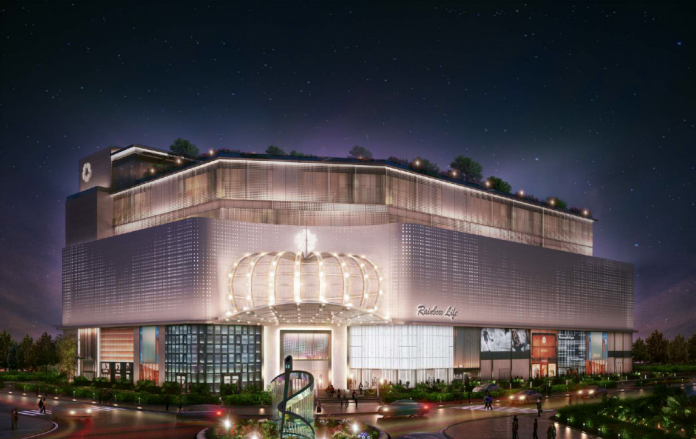By: Edwina Liu
Photos by: António Falcão
The interview was conducted in the centre of Ms. Sio’s empire, with every detail in the office well appointed by her, including the paintings, furniture and decorations – making it really hard to imagine how this able woman used only MOP5,000 to grow her business to the proprtions it is today.
 Rise of an empire
Rise of an empire
“My life has never been plain sailing. I struggled when I started my business and I do my jobs by myself until today,” says Terry Sio, who started her fashion business nearly 40 years ago.
In the beginning, she borrowed a few thousand from friends to start up her small shop selling imported Japanese clothes. The business was quite a success but people quickly copied her concept, with Sio’s business taking a hit from the low-balling competition. To get out of the woods, Sio set her sights on a higher level area, thus she started to sell European brands. At a time, it might be added, when Macau people did not care about fashion, let alone European brands.

At that time, Ms. Sio not only oversaw sales but was a disseminator of culture.
“It was quite difficult to sell European products at that time. I needed to pay much attention to telling people the advantage of these products. My friends were finally attracted by what I wore, so they bought from me and recommend my products to their [other] friends,” said Sio.
Coincidentally, she noticed that luxury fashion house Hugo Boss was looking for a partner to help them open up in Macau, so she flew to Germany to meet the brand guardians face to face.
“Don’t think too much is one of the most important keys to my success. If I had thought of how much I would lose, how difficult it would be, I would never have started my business,” she confides. “It was very, very difficult to bring them in. At first, nobody wanted to meet me. They even asked ‘Where is Macau?’ But I didn’t give up. I visited their offices every day and they were finally struck by me.”
Since then, her fashion empire – Rainbow Group – got on the right track and was on its way to its bright future. But another challenge arose when the city tendered gaming concessions and the first ever gaming investment project developed by an American company facilitated the opening of luxury brand franchises in Macau and wanted to operate the business on their own.
This wise woman knew well enough never to put all of her eggs in one basket and started to mull the opening of stores in second-tier cities in Mainland China.
“As I said, I’ve met many difficulties in my life. We are like the babysitter of the brands – when the baby grows up we should let it go. It’s natural.” she said. “At that time, I was also new to the Mainland China market; I didn’t think too much because catching every opportunity is another important belief in my life.”
Today, the Rainbow Group retails more than 20 international luxury brands via over 100 stores in 23 cities in China. As the name of the group suggests, no matter how much difficulty it encounters, after the storm comes the rainbow.
 Giving back to the industry
Giving back to the industry
Once her fashion empire had taken root Ms. Sio began to think about how to give back to the city and the industry.
“I think my love affair with fashion is fate,” she conjectures. “Since opening the first shop selling clothes, the upcoming thing was all related to fashion. I also helped to compile a teaching textbook of fashion.”
In order to train more talented people for the fashion industry, Ms. Sio founded the Rainbow Academy in 2005, collaborating with Macao Polytechnic Institute to create a Brand and Retail Professional Training Certificate Course.
In addition, she also cares about young local designers, saying: “Nowadays in Macau the government gives much support to local designers. I also try my best to help them; for example, I invite them to sell their products in our multi-brand store.”
 Looking forward to the future
Looking forward to the future
Back to the beginning, the Rainbow Group has just announced its intention to expand its territory to Hengqin, conceding, “To be honest, the situation in Hengqin is ever-changing: I also can’t predict its future. So that’s why I need to keep travelling, to get some new inspirations to adapt the trend.”
Ms. Sio also revealed that she had just returned from Guangzhou, where she had visited a new mall. The project is expected to introduce fashionable and creative brands. While enriching the brand mix, it is expected to enhance customer participation, experience and sensation, and focuses on opening up non-traditional retail experiences, bringing a new wave of life and leisure buzz to Guangdong citizens and tourists.
“To provide more lifestyle options,” she said, “I still need to talk with more brands and convince them to participate.”
























